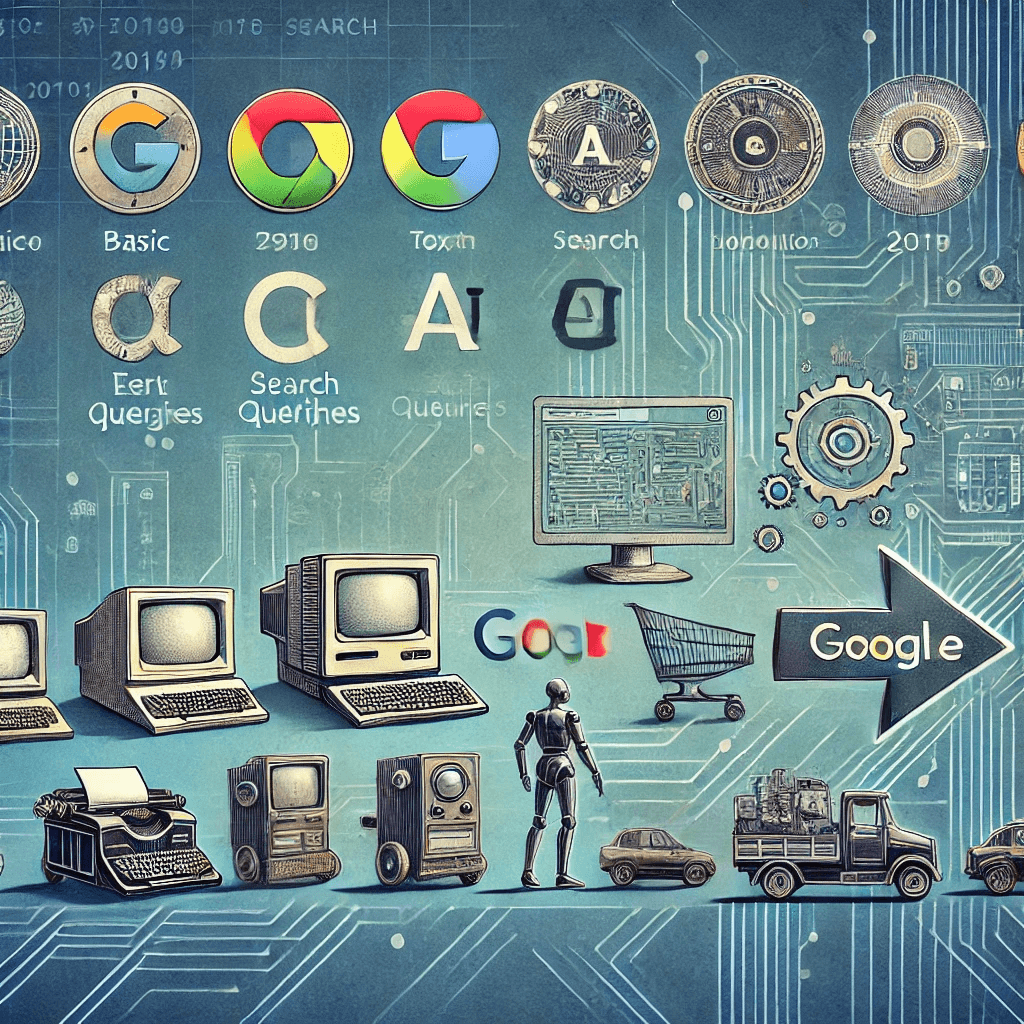The digital age has witnessed the rapid evolution of search engines, transforming the way we access information. This journey began with simple, text-based queries and has now progressed to advanced, context-aware algorithms. Understanding this evolution helps us appreciate the convenience of being able to search Google or type a URL to find virtually anything.
The Early Days of Search Engines
In the early 1990s, the internet was in its infancy, and search engines were rudimentary tools. Archie, created in 1990, is considered the first search engine. It allowed users to search for file names, but it didn’t index the content of the files. Following Archie, other search engines like Gopher, Veronica, and Jughead emerged, which provided more comprehensive search capabilities.
The Rise of Web Crawlers
By the mid-1990s, web crawlers like WebCrawler and Lycos started indexing the content of web pages, significantly improving the search experience. These early crawlers scanned the internet and built databases of indexed pages, making it easier for users to find relevant information. However, these search engines still relied heavily on keywords, which often led to irrelevant results.
The Google Revolution
The real breakthrough in search engine technology came with the advent of Google in 1998. Founded by Larry Page and Sergey Brin, Google introduced the PageRank algorithm, which ranked web pages based on their relevance and authority. This innovation transformed the search landscape, making it more user-friendly and efficient. The ability to “search Google or type a URL” became synonymous with internet browsing.
The Impact of Artificial Intelligence
Artificial Intelligence (AI) and machine learning have further revolutionized search engines. Google’s AI, known as RankBrain, helps interpret complex queries and deliver more accurate results. This technology goes beyond mere keyword matching and understands the intent behind searches, making the process more intuitive and effective.
Voice Search and Natural Language Processing
The rise of voice-activated assistants like Siri, Alexa, and Google Assistant has introduced a new dimension to search engines. Voice search utilizes natural language processing (NLP) to understand spoken queries, offering a more conversational and convenient way to find information. This technology has expanded the accessibility of search engines, especially for users with disabilities.
Personalized Search Experiences
Modern search engines are increasingly focusing on personalization. They use data such as search history, location, and user preferences to tailor search results. This personalized approach ensures that users receive relevant information quickly, enhancing the overall search experience.
Mobile Search Optimization
With the proliferation of smartphones, mobile search has become a significant aspect of internet usage. Search engines have adapted by optimizing their algorithms for mobile devices. Features like mobile-first indexing and Accelerated Mobile Pages (AMP) ensure that users receive fast and responsive search results on their phones.
The Role of Social Media
Social media platforms have also influenced search engine technology. Integrating social signals, such as likes, shares, and comments, into search algorithms helps determine the relevance and popularity of content. This synergy between social media and search engines enhances the visibility of high-quality content.
The Future of Search Engines
As technology continues to advance, the future of search engines looks promising. Innovations like augmented reality (AR) and virtual reality (VR) could revolutionize the way we interact with search engines, offering immersive and interactive search experiences. Additionally, advancements in AI and machine learning will further refine search algorithms, making them more accurate and context-aware.
Conclusion
The evolution of search engines from basic keyword matching to sophisticated AI-driven systems has dramatically transformed the way we access information. The ability to search Google or type a URL has become an integral part of our daily lives, thanks to continuous technological advancements. As we look to the future, we can expect search engines to become even more intuitive, personalized, and interactive, further enhancing our digital experiences.
This post was created with our nice and easy submission form. Create your post!







Comments
0 comments